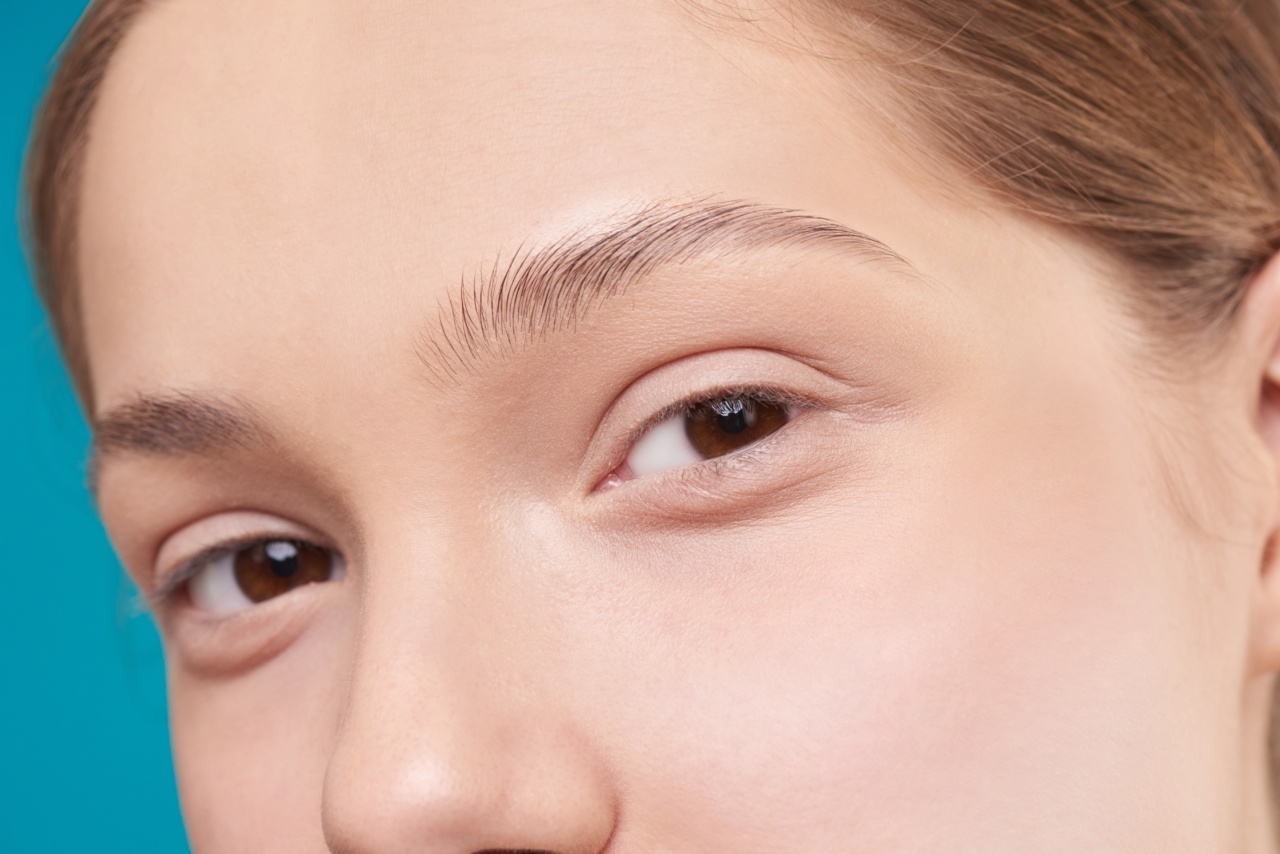Having clear and healthy skin is a dream for many people. A flawless complexion can boost your confidence and make you feel great about yourself. However, achieving clear skin can be a challenging and often frustrating journey.
Fortunately, there are natural remedies available that can help you in your quest for beautiful skin. One such remedy is apple cider vinegar, a household ingredient that has gained popularity for its potential skin-clearing properties.
The Science behind Apple Cider Vinegar
Apple cider vinegar is made through the fermentation process of apple cider. During fermentation, the natural sugars in apple cider are converted into alcohol.
This alcohol is then further fermented by bacteria to produce the final product of apple cider vinegar. The main active component in apple cider vinegar is acetic acid, which gives it its characteristic sour taste and pungent smell.
Acetic acid has been known for its antimicrobial and anti-inflammatory properties, making it a potentially effective treatment for various skin concerns.
Additionally, apple cider vinegar also contains vitamins, minerals, and antioxidants that can contribute to skin health.
How Apple Cider Vinegar Helps Clear Your Skin
Apple cider vinegar has numerous potential benefits for your skin:.
1. Balances the Skin’s pH Levels
The acidity of apple cider vinegar helps balance the pH levels of the skin. Our skin has a natural protective barrier called the acid mantle, which has a slightly acidic pH.
This acid mantle helps defend against harmful bacteria and maintains the skin’s hydration. Using apple cider vinegar on your skin can help restore and regulate the pH, promoting a healthy acid mantle.
2. Fights Against Acne-causing Bacteria
Acne is often caused by the overgrowth of bacteria, specifically Propionibacterium acnes. The acetic acid in apple cider vinegar has been found to have antibacterial properties that can combat these acne-causing bacteria.
By reducing the bacteria on the skin, apple cider vinegar may help reduce breakouts and promote clearer skin.
3. Reduces Inflammation and Soothes Irritated Skin
Inflammatory skin conditions such as acne, eczema, and psoriasis can cause redness, swelling, and discomfort. Apple cider vinegar’s anti-inflammatory properties can help calm the skin, reduce redness, and relieve irritation.
Applying diluted apple cider vinegar topically or using it as a facial toner may provide relief for these inflammatory skin conditions.
4. Exfoliates Dead Skin Cells
Regular exfoliation is crucial for maintaining clear and radiant skin. Apple cider vinegar contains natural alpha-hydroxy acids (AHAs) that gently exfoliate the skin by dissolving dead skin cells.
By removing the buildup of dead skin cells, apple cider vinegar can unclog pores and reveal smoother, brighter skin.
5. Helps Fade Acne Scars and Hyperpigmentation
Acne scars and hyperpigmentation can be stubborn and difficult to treat. However, apple cider vinegar’s acidic nature may help lighten these dark spots over time.
The AHAs in apple cider vinegar can promote the shedding of dead skin cells while encouraging the growth of new cells, potentially reducing the appearance of scars and hyperpigmentation.
How to Use Apple Cider Vinegar for Your Skin
When using apple cider vinegar for your skin, it is important to dilute it with water or other suitable ingredients to avoid irritation. Here are a few ways to incorporate apple cider vinegar into your skincare routine:.
1. Facial Toner
Mix one part apple cider vinegar with two parts water. After cleansing your face, apply the mixture to your skin using a cotton pad. Let it dry before applying moisturizer and other skincare products.
Start by using the toner a few times a week and gradually increase the frequency if your skin tolerates it well.
2. Spot Treatment
Dip a cotton swab into a small amount of diluted apple cider vinegar and apply it directly to individual acne spots or blemishes. Leave it on overnight and rinse it off in the morning.
Be cautious not to apply undiluted apple cider vinegar to your skin, as it may cause irritation.
3. Face Mask
Mix two tablespoons of apple cider vinegar with one tablespoon of honey and one tablespoon of bentonite clay. Apply the mask to your face, avoiding the delicate eye area. Leave it on for 10-15 minutes, then rinse thoroughly with warm water.
Follow up with a gentle moisturizer.
Precautions and Tips
While apple cider vinegar can be beneficial for your skin, it is essential to exercise caution and follow these tips:.
1. Patch Test
Perform a patch test on a small area of your skin before using apple cider vinegar all over your face. This will help determine if your skin reacts negatively to the vinegar or if you need to adjust the dilution ratio.
2. Dilute Properly
Always dilute apple cider vinegar with water or other suitable ingredients. Using undiluted vinegar can lead to skin irritation and damage.
3. Protect Your Eyes
Be careful to avoid contact with your eyes when using any solution containing apple cider vinegar. If accidental contact occurs, rinse your eyes with cool water immediately.
4. Consult a Professional
If you have sensitive skin, eczema, or any underlying skin conditions, it is advisable to consult a dermatologist or skincare professional before using apple cider vinegar on your skin.
Conclusion
Apple cider vinegar has the potential to improve the overall health and appearance of your skin. Its natural acidity, antibacterial properties, and exfoliating ability make it a versatile choice for individuals seeking to clear their skin.
However, each individual’s skin is unique, so it is important to listen to your skin and adjust your skincare routine accordingly. With proper dilution and caution, apple cider vinegar may become a valuable addition to your skincare arsenal.































